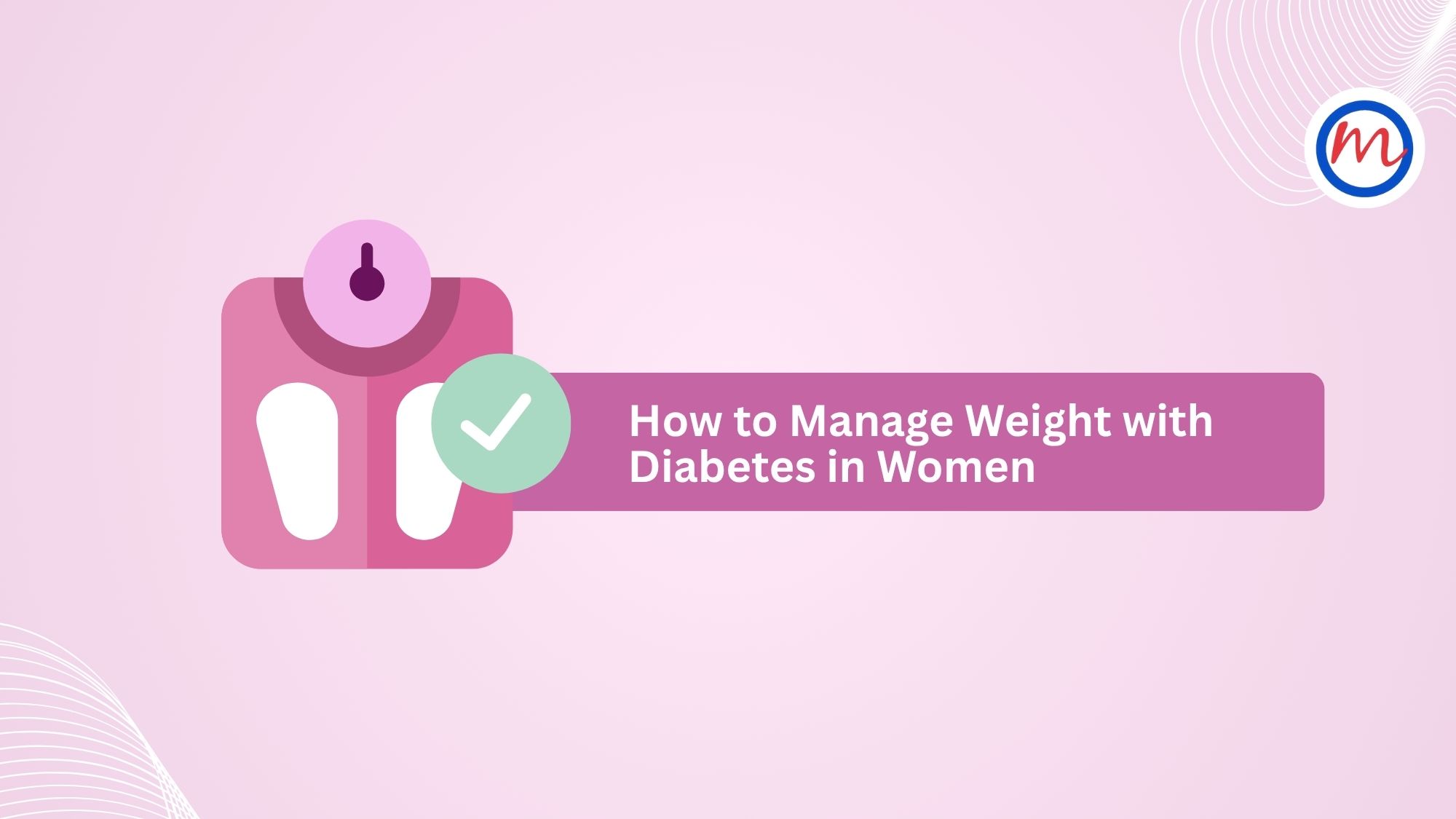How to Manage Weight with Diabetes in Women Over 30
Introduction
Weight management is an essential part of diabetes care, especially for women over 30. As metabolism begins to slow and lifestyle factors like work and family pressures and stress increase, managing weight becomes more challenging. But even modest weight loss can significantly improve blood sugar control and reduce diabetes-related complications. This article focuses on realistic, sustainable ways for women to lose weight while living with diabetes.
Why Weight Matters in Diabetes
Excess body fat—especially around the abdomen—worsens insulin resistance, which is the primary cause of type 2 diabetes. For women over 30, the hormonal changes and sedentary lifestyle habits often lead to gradual weight gain, making diabetes harder to control.
Benefits of weight loss in women with diabetes include:
- Better blood sugar levels
- Lower HbA1c readings
- Reduced medication dependency
- Lower cholesterol and blood pressure
- Improved energy and self-esteem
Common Challenges for Women Over 30
- Slower metabolism
- Emotional eating due to stress or hormonal fluctuations
- Irregular meal timings due to work or childcare responsibilities
- Lack of physical activity
- Hormonal issues like PCOS or early perimenopause
Healthy Weight Loss Tips for Women with Diabetes
- Focus on Balanced, Whole Foods
Skip extreme diets. Instead, adopt a sustainable eating pattern:
- Include fibre-rich foods such as vegetables, legumes and whole grains.
- Choose lean protein sources—paneer, dals, fish or eggs.
- Use healthy fats like nuts, seeds and olive oil in moderation.
- Avoid sugary drinks, fried snacks and white rice.
🡺 Read: Fibre and Diabetes – Why It Matters
- Control Portion Sizes
Even healthy foods can lead to weight gain if consumed in large amounts. Use smaller plates, avoid second helpings, and learn to recognise hunger cues.
- Time Your Meals Smartly
Eating at consistent times helps maintain blood sugar balance and prevents overeating. Don’t skip meals—especially breakfast.
- Stay Hydrated
Sometimes thirst is mistaken for hunger. Drinking enough water also supports fat metabolism and digestion.
Exercise: The Secret Weapon
Physical activity improves insulin sensitivity and supports weight loss.
- Start with brisk walking, 30 minutes a day, 5 days a week.
- Add strength training twice a week to build muscle, which burns more calories.
- Try yoga or stretching for flexibility and stress relief.
Address Emotional Eating
Many women turn to food when stressed, tired or upset. To break this cycle:
- Keep a food and mood diary
- Identify triggers and find alternatives like a walk, journaling or calling a friend
-
Practice mindful eating—chew slowly, avoid distractions, and savour each bite
Track Your Progress (But Don’t Obsess)
Track your weight once a week and focus on non-scale victories: improved energy, better blood sugar, looser clothes. Celebrate consistency, not perfection.
Consider Medical Support
If weight loss is difficult despite best efforts, consult a dietitian or endocrinologist. Options like personalised meal plans, metabolic testing or medications may be recommended.
Motivation for Women Over 0
- You don’t need to be perfect. Even a 5–7% weight loss makes a huge difference.
- You’re not alone—support groups or fitness buddies can keep you motivated.
- Small changes add up—just focus on one habit at a time.
Conclusion
Managing weight with diabetes is a journey—but one that pays off in health, energy and confidence. With the right food choices, physical activity, stress management and support, women over 30 can take charge of their health and thrive with diabetes.

Leave a Reply